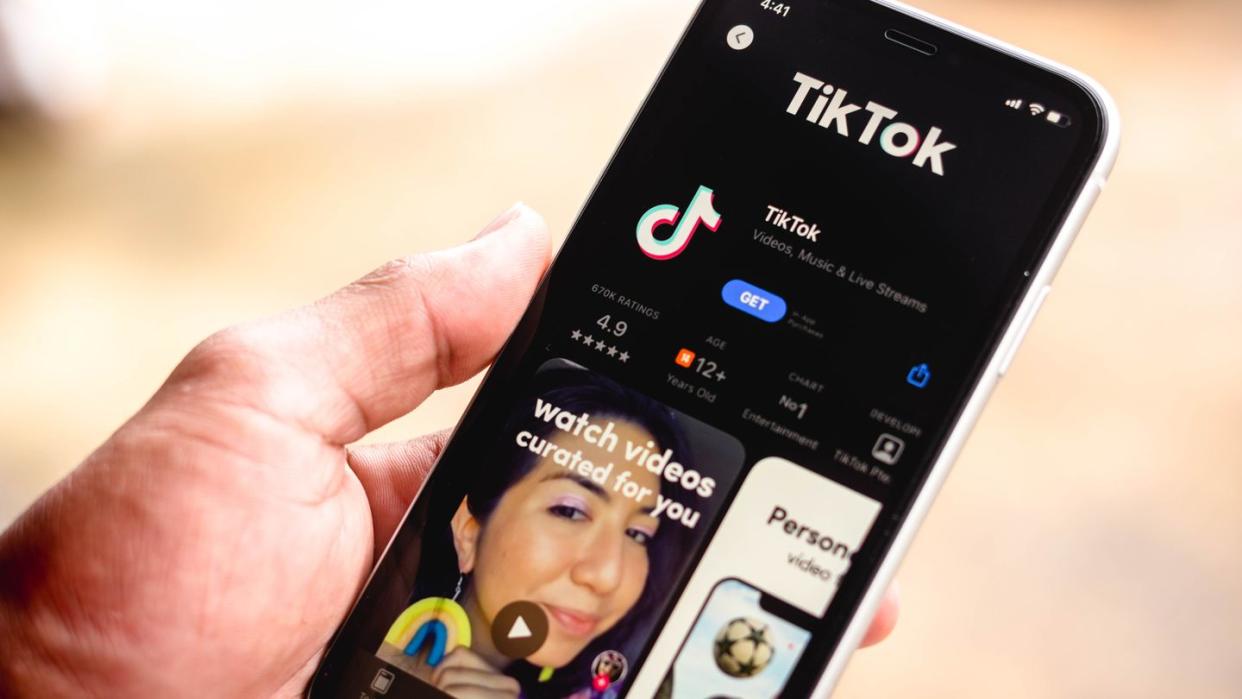Only 2% Of Nutrition Videos On TikTok Are Accurate, New Report Says

A new wellness hack pops up on TikTok every other week, and over half of the population seems to blindly trust the video platform for health info. A new study claims that 57 percent of people are adopting nutrition trends from TikTok in their own lives—but maybe they shouldn't be?
According to the study, conducted by MyFitnessPal, only 2.1 percent of nutrition content on TikTok is accurate.
After surveying 2,000 people and over 67,000 videos on the social media platform, the tech company found that a little over 2 percent of all nutrition information was actually aligning with public health guidelines.
Why exactly are we seeing such a spike in inaccurate nutrition information? After all, 87 percent of millennials and Gen Z TikTok users trust the platform for health advice, and 67 percent said that they adopt at least one trend from the app a few times a week. According to MyFitnessPal Chief Marketing Officer Katie Keil, these fads go viral because of their "sensational hook."
"The more unusual, the more it spreads," she told Delish. "The best thing we as consumers of social media can do is improve our digital health literacy—and that starts with following credible experts and verifying what you hear against science."
She warned against anything "promising a quick 'fix,'" and says that this can be one of the most dangerous inaccuracies on the internet.
"Anything promising 'quick weight loss' or 'losing belly fat fast' sets up unrealistic expectations and makes people feel like they fail—when it was never achievable to begin with," Keil said.
"We’ve seen a lot of fad diets go viral recently and they can cause gastrointestinal distress—like when consuming large quantities of chia seeds with the 'internal shower' trend. There are even fad diets that severely limit nutrient intake by focusing on eating only one type of food, such as the cabbage soup diet. Eating a well-balanced diet with a variety of whole foods is a better approach to maintaining overall health and well-being."
According to Keil, the most important thing you can do as a consumer is be mindful of the content you're watching. If the claims are "over-simplified or promote a 'one-size-fits-all' approach, be cautious," she says, while noting that just because a person has a lot of followers or has gone viral in the past doesn't necessarily mean they're reliable.
"Even if they are credentialed, such as being a registered dietician or a medical professional, always cross-check and verify the information," she adds. "Being responsible consumers when scrolling means getting a second opinion and ensuring other health and nutrition professionals have similar recommendations."
You Might Also Like

